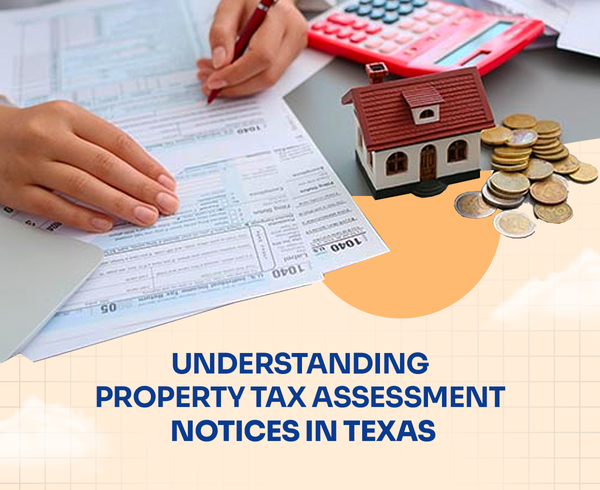Understanding the significance of property tax assessment notices in 2025 can help you stay ahead of your tax obligations and save your money.
Introduction
Paying property taxes is a serious burden for tens of millions of people across the country, and that burden can increase even further upon receiving property tax assessment notices. In Texas, where property taxes are reassessed every 1-3 years, and where the real estate market is poised for a big comeback in 2025, many homeowners may be worried about paying higher property taxes in the near future. That unwanted process begins with the arrival of a property tax assessment notice, but that isn't the end of the story. Let's dive into the details of changes to property taxes and the resources homeowners have to protest or mitigate the tax hike.
Property Tax Assessment Notices in Texas
To begin with, it is important to note that a property tax assessment notice is not the same as a property tax bill. A property tax assessment notice is a document informing homeowners that there has been a change in the assessed value of their property that will be reflected in future property tax bills.
Property values are assessed (and reassessed) by county tax appraisers, who are appointed by individual appraisal districts or local governments. As per the Texas Property Tax Code, each appraisal district must reassess all the properties in their jurisdiction no less than every three years.
As such, you can expect to receive a property tax assessment notice every 1-3 years, as these public notices are mandatory under Texas law and will be sent to your last established address. This notice of appraised value will contain all relevant information for homeowners, including the proposed assessment value of the property.
Depending on the county you live in, as well as the specific procedures of the tax district where your property is located, this notice may also include an estimate of the property taxes for the year, as well as information on the previous year's tax rate.
If your property is within the jurisdiction of a specific school district, water district, or small taxing unit, the requirements for notification may vary slightly. To ensure that you are fully informed and aware of potential changes in your property tax burden, it is best to directly consult your local taxing authority.
Like other Texas homeowners, you may disagree with the new valuation found on your property tax assessment notice, and there are avenues for you to dispute and protest the updated value. Filing for a property tax protest and successfully arguing your case is entirely possible, though it can be a bit confusing for new homeowners or those dealing with Texas property tax policy for the first time. Fortunately, there are myriad property tax consultancy firms, such as Bezit, that can help you navigate the paperwork, filing procedures, and protest options if you believe your property has been unfairly assessed.
Conclusion
When you receive a property tax assessment notice in Texas, it can cause more than a bit of stress, as it could result in an increase in your property's assessed value. However, seeking help from professional tax consultants like the experienced team at Bezit is one way to stay on top of this potentially worrying scenario. Even if your property tax bill increases due to a property reassessment, there may be other exemptions available to lessen your tax burden, or you may have grounds to protest the new assessment. To stay informed and keep as much of your hard-earned money as possible, reach out to the experts at Bezit.

